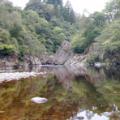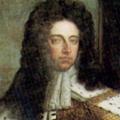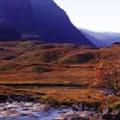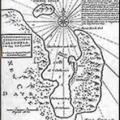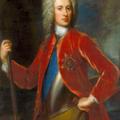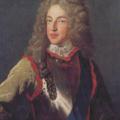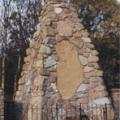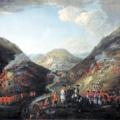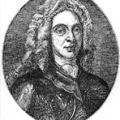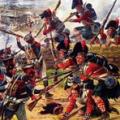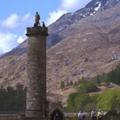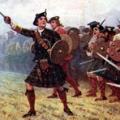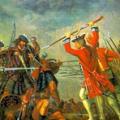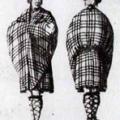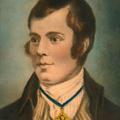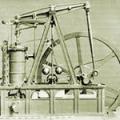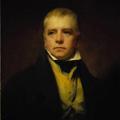Categories
Most Liked
Posted on July 17, 2013
by Amanda Moffet
by Amanda Moffet
Posted on May 12, 2013
by Chas Mac Donald
by Chas Mac Donald
Posted on August 29, 2013
by Amanda Moffet
by Amanda Moffet
Posted on February 6, 2013 by Donald | 2 views | comments
Near Pitlochry in Perthshire is the Pass of Killiecrankie, a gorge with a six feet wide riverside track.
News came to Jacobite leader Viscount Dundee, John Graham of Claverhouse, that General Hugh MacKay would be moving his men from Stirling to Blair Castle. Dundee, known by his supporters as Bon...
Posted on February 6, 2013 by Donald | 0 views | comments
James had converted from Protestantism to Catholicism in 1668 whilst his brother Charles II was monarch. When the King too converted and tried to re-install Catholicism among his subjects around 1672, there was outrage. Acts were passed in Parliament, such as the Test Act, so only Anglicans could ...
Posted on February 6, 2013 by Donald | 1 views | comments
While the other MacDonald clans suffered through the 1500s, the MacDonalds of Glencoe survived notably well. Perhaps their greatest protection was their home environment acting like a natural fortress. They certainly never found the need to build one. Also only the strongest of people could develo...
Posted on February 6, 2013 by Donald | 0 views | comments
For twenty years the London East India Company had enjoyed soaring success, bringing incredible fortunes to its stockholders through its virtual monopoly of Eastern trade.
By 1695 competitors in the market were using every scandalous technique to have Bills in their favour passed in England’s Par...
Posted on February 6, 2013 by Donald | 2 views | comments
The crowns of Scotland and England had become one in 1603 and Cromwell had tried to bind the countries’ political systems together fifty years later, but Scotland still wanted to govern its own religious, financial and political affairs.
The eighteenth century began for Scotland with financial ru...
Posted on February 6, 2013 by Donald | 0 views | comments
Thanks to the treatment of Scotland before and after the 1707 Union, there was always strong underground support for the reinstatement of the exiled Stewarts to the throne.
Events following the death of Queen Anne in 1714 brought emotions to a level where the man who would lead government forces,...
Posted on February 6, 2013 by Donald | 1 views | comments
On the 6 September 1715, the 6th Earl of Mar, John Erskine, declared himself for James Francis Edward Stewart, the Old Pretender, and left Braemar carrying the Stewart standard to head south to the Jacobites in England. By the end of the month he had taken over Inverness with twelve thousand men b...
Posted on February 6, 2013 by Donald | 1 views | comments
The first Rising had failed by 1716, though skirmishes would continue.
1719 saw what was known as the "little Rising". The only battle of this Rising occurred between a government army led by General Wightman and Jacobites under the 10th Earl Marischal at Glenshiel.
The Jacobite cause was suppo...
Posted on February 6, 2013 by Donald | 1 views | comments
The man credited in the National Anthem with the ability to frustrate and crush rebellious Scots is also the man who brought the first proper roads to the Highlands.
Major-General George Wade was Commander-in-Chief of North Britain from 1724 until 1740, during which time he had military routes ac...
Posted on February 6, 2013 by Donald | 2 views | comments
One of the world’s most famous militia was first raised in 1725 and became a Regiment under the Earl of Crawford as Colonel in 1739.
Known then as the 43rd then 42nd Royal Highland Regiment, its Gaelic motto translated into ‘The Black Watch of Battles, First to Come and Last to Go’.
The Black Wat...
Posted on February 6, 2013 by Donald | 1 views | comments
In 1745 news was received of a powerful new Jacobite force to arrive from the Continent, headed by the grandson of James VII, returning from exile in Italy.
At Loch nan Uamh in Arisaig, Prince Charles Edward Stewart came ashore with only seven supporters, known later as the Seven Men of Moidart. ...
Posted on February 6, 2013 by Donald | 0 views | comments
Bonnie Prince Charlie’s landing on Scottish soil ignited a firestorm of incredible stories and willing recruits so that the myths encouraged the masses, who encouraged the myths in a cycle. While the stories were drawing volunteers they were worrying the established powers. Sir John Cope, commandi...
Posted on February 6, 2013 by Donald | 0 views | comments
The Jacobites had fought all the way from the Highlands to Derby in England.
Outside of the Highlands it was becoming clear that Prince Charles and his claim was of no interest to Lowlanders or the Northern English, where very few supporters were coming forward. The Stewart intention of using suc...
Posted on February 6, 2013 by Donald | 8 views | comments
Culloden Moor, known then as Drummossie Muir, was the site of the last pitched battle on the British mainland on 16 April 1746.
The Jacobites were pulling back into the Highlands, ending their siege of Stirling as they headed for Inverness. Despite their victory at Falkirk, Jacobite morale was de...
Posted on February 6, 2013 by Donald | 3 views | comments
Following the Jacobite defeat at Culloden, the last pitched battle on British soil, Prince Charles fled to South Uist then eventually across to France.
His supporters who remained suffered terribly from ‘Butcher Cumberland’ and his medieval reprisals. To further punish Scotland, Parliament issued...
Posted on February 6, 2013 by Donald | 2 views | comments
Robert Burns was born in Alloway, Ayrshire on 25 January 1759.
His father was a gardener and tenant farmer, and the life he was brought up in made him acutely aware of society’s unfairness as he laboured hard yet lived in poverty.
In 1786 he published 612 copies of Poems, Chiefly in the Scottish...
Posted on February 6, 2013 by Donald | 3 views | comments
James Watt, the son of a merchant, was born on January 19, 1736, in Greenock. He worked as a mathematical-instrument maker as a teenager and soon became interested in steam engines, which were used at the time to pump water from mines. His interest really took off in 1763 when he was given a Newco...
Posted on February 6, 2013 by Donald | 2 views | comments
Novelist and poet Sir Walter Scott was born in 1771 in Edinburgh, one of six surviving infants from twelve.
At eighteen months he took ill with poliomyelitis but pulled through although with a lame right leg. He was well educated, studying at Edinburgh University. In 1792 he was admitted to the F...
Featured Articles
Most Discussed
Posted on July 16, 2013
by Amanda Moffet
by Amanda Moffet
Posted on February 6, 2013
by Donald
by Donald
Posted on July 17, 2013
by Amanda Moffet
by Amanda Moffet


 View More
View More View Less
View Less